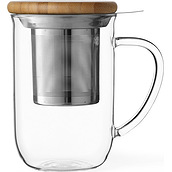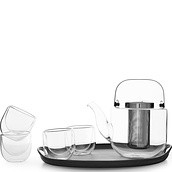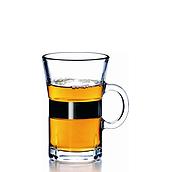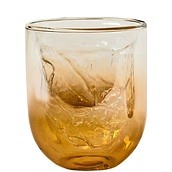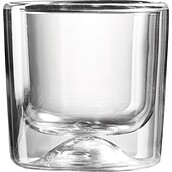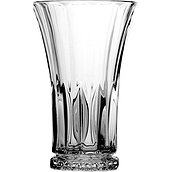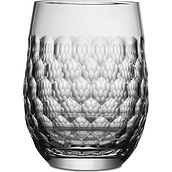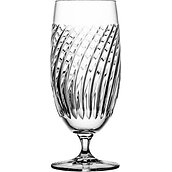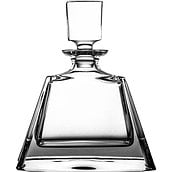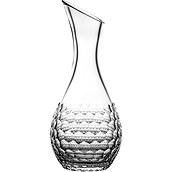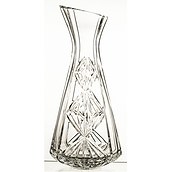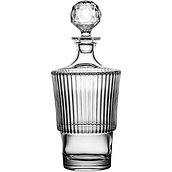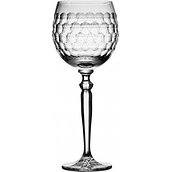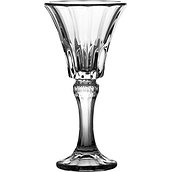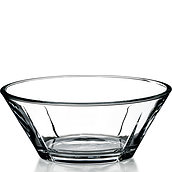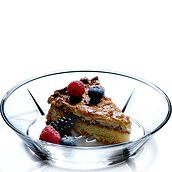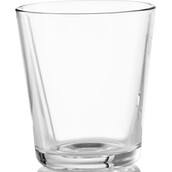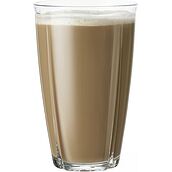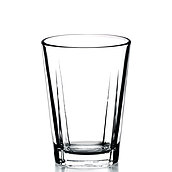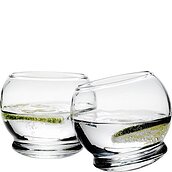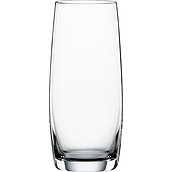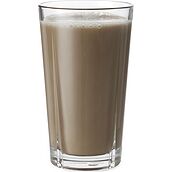Types and properties of glass. How to distinguish glass from crystal?
We use it every day but how much do we really know about it? When you buy a glass item, it seems simple - after all, what glass is, everyone sees. But it's only appearances, and it's easy to get lost in a glass thicket! You can find out how to recognize a crystal glass with your senses and what properties borosilicate glass has from our text.
The first traces of glass use come from Mesopotamia and are 4,000 years old! Pliny the Elder claimed that glass was discovered by chance by Phoenician merchants about 5000 BC. Although the origins of glass go far back in the past, it has only been in common use since the 19th century - before that, few could afford glass products. Fortunately, today glass bowls or glass vases can be found in every house. If like us, you like glass objects, we have prepared a guide for you on the types and properties of glass.


Sodium glass
The most popular type of glass in daily use. Sodium glass is made of quartz sand with the addition of sodium carbonate (hence the name) and calcium oxide. It is easily accessible, relatively cheap, brittle, light, and additionally does not absorb food odours. It is easy to colour in the production process, so the glass choices do not have to be transparent! Probably the glasses or glass bowls in your home are just made of soda glass.
Of course, soda glass has its disadvantages too:
- does not like temperature changes (pouring boiling water into a cooled glass may result in cracking);
- it heats up quickly, so it's hard to drink hot liquids from the glass;
- It becomes mat under the influence of cleaning agents.
But there is nothing to worry about because there are solutions to these problems! Use soda glassware at home only for cold dishes and liquids or at room temperature, and for special occasions, make use of accessories made of other types of glass, e.g. heat-resistant glassware. For hot drinks, use tea glasses, e.g. designer tea glasses with holders, which were used in the People's Republic of Poland and which today are experiencing their second youth. Dishwasher polishes are best for tarnishing.
Borosilicate glasses
From the lab...
Borosilicate glass is a high-quality material used in laboratories... ...and increasingly in our homes. It doesn't contain calcium oxide, but it has an admixture of boron oxide. It is also characterized by very low thermal expansion, resistance to high temperatures (even up to 230°C!), or thermal properties - fluids in borosilicate glass heat up more slowly and cool down more slowly, which is why this material is often used to make thermal glasses. The double bottom and the walls of the glass increase the effect even more, which is why such vessels maintain the temperature of the liquid inside for a long time. You can enjoy refreshing lemonade in summer and hot coffee in winter.
... ...straight on your dining table!
But borosilicate glass has even more advantages! It is light, does not lose its shine, has greater resistance to scratches. In other words, it is a new generation of glass.
Crystal glasses (lead)
The most elegant and chic type of glass, famous for its vessels and jewellery of special beauty. Crystal glass is enriched with a large amount of lead oxide, which makes it more ductile, and at the same time, it shines much stronger and refracts light beautifully. Lead glass is usually cut and moulded into unusual patterns to make its properties as visible as possible, hence the name borrowed from mountain crystals, which similarly shine in the sun. Crystal dishes, such as glasses or crystal bowls, are very elegant and perfect for a gift! Dad will certainly enjoy a crystal decanter or whisky glasses.
Interesting fact
Crystal glass is also used in the well-known Swarovski jewellery. The founder of the company and creator of the brand legend, Daniel Swarovski, produced crystal glass for his jewellery himself, and his original recipe is still secret today.
How to distinguish crystal from glass?
Although they seem almost identical, the distinction between crystal and sodium glass is very simple. How to do this? Just pay attention to several factors:
- Weight - Crystal vessels are heavier than those made of traditional glass due to the high weight of lead, so when you take two glasses of the same size, the one made of the crystal will certainly be heavier.
- Glow - when you see a crystal glass, you will immediately understand the difference. Thanks to the admixture of lead, crystal glass shine much stronger than sodium-calcium glass and additionally refracts light beautifully (refraction).
- Transparency - soda-lime glass is cloudy, which is particularly striking when looking at the light. Crystal has much greater transparency, so wine lovers usually reach for crystal glasses to fully appreciate the colour and density of their favourite drink.
- Sound - probably the easiest way to recognize the type of glass. If you want to make sure you're holding a crystal glass, hit it lightly and then listen to the sound. A ringing sound means you're dealing with a crystal, and a low, deaf sound means you're holding a glass. A crack of the broken glass means that you've hit too hard ;)
- Thick - leaded glass has a lower melting point, making it easier to blow. The result is thinner and more delicate walls of the vessel.
Unleaded glass
If you are worried about whether lead in the crystals is safe, we reassure you that, according to specialists, lead oxide is so strongly bound in glass that it does not react with wine or other liquids poured into a decanter, for example. However, if you do not feel convinced, you can always reach for lead-free glass. Glass without any lead-free admixtures is offered, among others, by Rosendahl company, known for its elegant tableware. Stylish, minimalist dishes attract attention with rounded, delicate lines, and at the same time beautifully expose your dishes. What's more, Rosendahl glass fits together perfectly. It is worth investing in a set of glasses or a glass bowls of the brand, they will surely enjoy your eyes for years to come.
